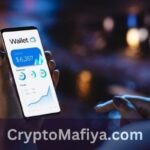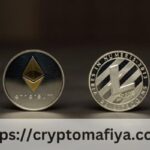Powered by the Ethereum blockchain, alchemy nft api tracks every change to non-fungible tokens (NFT) and their associated metadata. This enables developers to build NFT collection and ownership tools that are more accurate, trustworthy and scalable.
It’s the foundation that underpins many of today’s top NFT games and marketplaces, including CryptoKitties and Fishbank. Read more about: alchemy nft api.
Also Read: melanie martinez nft
Get NFTs
NFTs (non-fungible tokens) are digital representations of a non-fungible asset like video games, art, music, or real estate. They are verified and secured by a blockchain, which ensures their authenticity and uniqueness. The blockchain also provides a way to securely transfer ownership of these tokens. Despite the complex nature of these tokens, they are a growing component of online commerce and are expected to become more prevalent in the future.
The NFT API is a valuable tool for developers looking to incorporate NFTs into their projects, including digital marketplaces and collections of NFTs. The NFT API allows developers to quickly and easily access data, including metadata, owner information, and transaction history. The NFT API also enables developers to filter spam or airdropped NFTs, which is important for building trust with users.
To use the NFT API, you must first obtain an API key from Alchemy. This can be done by creating a free account on the Alchemy website. Once you have an account, you can then use the Alchemy NFT API endpoints to get the information you need.
Moralis is a powerful cross-chain NFT API tool that provides access to NFTs, tokens, and wallet balances across major networks including Ethereum, Solana, Polygon, Avalanche, Fantom, Cronos, and more. Moralis is faster than the other top NFT APIs and comes with a host of features to help developers build exceptional Web3 experiences.
Get Owners
NFTs, or non-fungible tokens, are digital collectibles that represent ownership of a variety of tangible and intangible assets such as videos, images, fine art, and real estate. They are verified and secured by a blockchain, making them unique and unreplicable. In addition, they are digitized and encrypted, guaranteeing their authenticity and integrity. They can also be used to trade and exchange digital goods and services.
Alchemy’s NFT API enables developers to easily search and display NFTs by collection, owner, or creator without having to have a deep understanding of blockchain technology. It indexes NFTs and caches metadata to enable rapid NFT searches. This allows for faster and more reliable NFT queries in a Web3 environment. Alchemy is a decentralized infrastructure provider that provides dependable remote node connections and blockchain scaling to simplify dApp development.
The Alchemy Stream API enables developers to subscribe to notifications for events such as new item listings, item sales, NFT transfers, and metadata updates on items or collections. Developers can use this data to track marketplace activity and NFT sales in real time and respond quickly to changes.
Some methods reference the collection class and are renamed to refer to Contract for greater accuracy: e.g., getNftMetadata() and getNftsForOwnerIterator(). Additionally, methods that return NFTs with a specific token ID have been normalized to include the contract address and tokenId. NftMetadata objects can be omitted by setting the omitMetadata parameter to true.
Get Minted NFTs
Like APIs that enable you to integrate maps from Google or Apple right onto your website, Alchemy’s features make it easy for developers to incorporate NFTs into their applications. The company’s feature-rich NFT API platform is already used by a number of popular platforms, including OpenSea and NFTfi.
Creating NFTs with this platform is easy, and the resulting tokens can be minted on Mumbai or Polygon, the two largest NFT marketplaces. Users can even monetize their NFTs by selling them in the open marketplace or auctioning them. Alchemy also offers various tools to help users manage their NFTs, including getting spam contracts and a snapshot of marketplace sales.
The team behind Bueno was inspired by their own experiences with building an NFT collection. While the process had its peaks and valleys, they were energized by the tech they learned, the community they built, and new possibilities for improving the space. As a result, they created Bueno, a powerful no-code toolkit for NFT creators that takes them from concept to launch and beyond.
Using Bueno, developers can build NFTs that allow users to purchase or trade items within an online game, in a virtual world, or in real-world locations. The platform also enables them to create a marketplace where users can buy or sell NFTs and other digital assets. The platform offers several benefits, including an automated retry system that prevents downtime.
Get Spam NFTs
The Alchemy NFT API is a new tool that lets developers write chain-agnostic smart contracts, mint NFTs, and build fully-functional end-to-end dApps capable of scaling. It is powered by Alchemy’s hardened node infrastructure, guaranteeing best-in-class node reliability and data correctness. It also provides a variety of quality-of-life improvements, such as automated retries.
Using this API, developers can launch and verify NFTs, as well as get detailed information about them. It also detects changes and retrieves their associated metadata from multiple blockchain networks. In addition, this API supports a number of useful features, such as token gating and image caching. It is also multi-chain compatible, allowing it to be used with a variety of different NFT platforms.
This API is a powerful tool for NFT developers, offering real-time access to NFT ownership and transaction data. It also enables the creation of unique communities by making it easy to token gate NFTs. The API is based on the popular Ethereum blockchain and has full cross-chain support.
It can be used to create a variety of applications, including NFT marketplaces and games. Its developers are working to lower the barrier of entry for developers, helping them take advantage of the NFT craze.
Currently, it powers the world’s biggest NFT marketplaces, including OpenSea, Nifty Gateway, Makersplace (which recently set a record for digital art sales), Dapper Labs (creators of NBA Top Shot and Crypto Kitties), Zora, Super Rare, Foundation, Enjin, and Origin Protocol.
Get Floor Prices
Getting floor prices in alchemy is an important part of NFT monetization, and it’s a bit tricky to find out. Luckily, there are several tools to help you out. One is the NFT Data API, which provides access to key data points such as NFT sales and floor prices. This API is free of charge and is available via REST or websockets.
Another is the NFT Metadata API, which lets you search for NFTs by contract address and token ID. This API also enables you to track NFT transfers and see the distribution of ownership among users. This information is useful for NFT monetization, especially in cases where you want to verify ownership and prevent fraud.
The OpenSea API allows you to buy, sell, and bundle NFTs. It also supports auctions and bidding. It is a powerful tool for NFT monetization, and it offers many benefits to developers. For example, it can reduce transaction costs by avoiding the need to create your own smart contracts. It can also be used to monitor inventory changes, which can help you avoid overselling or underselling your products.
Mnemonic is a powerful Web3 data and analytics tool designed for builders, brands, and businesses in the NFT space. It features a foundational NFT data API, a marketplace API, and an audience insights API. It also provides a range of other services including wallet holding insights, segmentation capabilities, and financial profiles.
Get Rarity
The rarity of an NFT is one of its most important factors, and can affect its price. Rarity can be calculated based on several different criteria, including total supply and demand. For example, an NFT with a gold fur and laser eyes may be considered rarer than an ape with brown fur and boring eyes. NFTs with high rarity are more likely to be sought after, and thus have higher prices.
Non-fungible tokens (NFTs) are unique cryptographic tokens that represent ownership of digital assets like video games, virtual worlds, fine art, real estate and more. Each NFT is backed by a blockchain, certifying its ownership, origin, and uniqueness. It also secures its value by preventing double spending.
NFTs are used in a wide variety of applications, from collecting art to playing games to earning rewards and utility. NFTs can be redeemed for in-game goods, sold, or traded between players. They can even be used as currency in real-world transactions.
NFTs are a fast-growing market, and developers are using them in many innovative ways. This includes creating dungeons for gamers to hack and slash their way through, a metaverse where gamers can earn real cash for participating in play-to-earn activities, and immersive experiences in which people can earn virtual loot in a fantasy world.
Developers who want to build these types of platforms are looking for tools to make the process faster and easier. That’s where Covalent API comes in. Our NFT blockchain data API offers an efficient way to get NFT market data from multiple marketplaces and blockchains, standardizing the response for ease of use. Read more about: alchemy nft api.
It’s powered by our hardened node network, guaranteeing best-in-class reliability and scalability. When users access this data, they pay a fee in USDC. This helps support the network and incentivizes node operators to answer requests.

